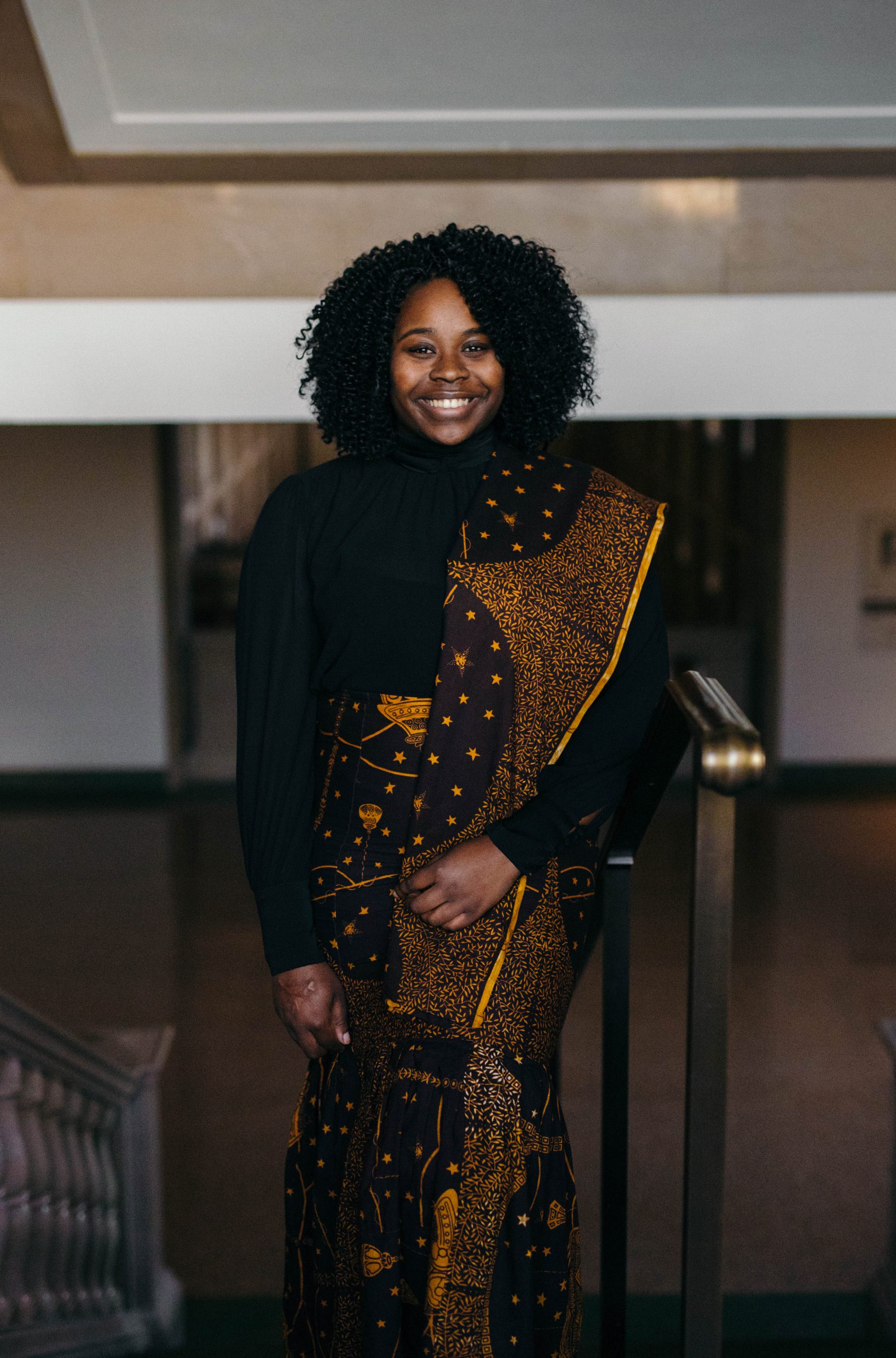UMN’s first Black student body president is leaving campus, but not without leaving her mark.
By Samantha Hendrickson
While serving as the first Black student body president of the University of Minnesota, Jael Kerandi sent a letter.
The letter, addressed to University President Joan Gabel, called for the University to cut all ties with the Minneapolis Police Department, just days following the police killing of George Floyd in May 2020.
The demand was heeded less than 24 hours later, and Kerandi suddenly became a voice in a national conversation.
Now, 10 months after sending that letter, Kerandi continues to lead on campus, despite no longer serving as student body president.
A senior studying business and finance, Kerandi balances multiple leadership roles on campus — including representing students to the University’s Board of Regents through the Minnesota Student Association and serving as the vice president of the National Association of Black Accountants.
“When I saw her get involved that early, that was when I realized that she’s going to make a difference at this University,” said Allan Kerandi, Jael’s oldest brother who graduated from the University’s Medical School. “Whichever path, or however she goes about it, she’s gonna leave her legacy behind.”
After she graduates in May, Kerandi will go to work for Microsoft in its financial division, but the journey to post-grad life and the corporate world brought unexpected lessons and opportunities for leadership.
Sustaining her Kenyan heritage
Kerandi was born in Nairobi, Kenya, and immigrated with her family to the United States when she was 18 months old. They settled in Plymouth, Minn. where her father works as a family medical doctor and also runs his own clinic for African immigrant communities. Kerandi’s mother helps run the clinic, working as an interpreter.
While nearly all of her life has been spent in the United States, Kerandi said her family still holds fast to the traditions of their home country and culture.
“My parents didn’t move here and not do anything with their culture. If anything they strengthened it, because we weren’t getting it from anyone else,” Kerandi said.
Her parents, she said, made sure she never forgot where she came from. They taught her Swahili from a young age as well as how to cook Kenyan dishes, which continues to be one of her favorite activities. Despite the stark cultural differences to other Black Americans their heritage and country of origin provided, to some, they were just another Black family living in America. Discrimination did not pass them by.
“If my brother or dad was pulled over, no one would say, ‘Oh, you’re Kenyan,’” Kerandi said. “Even though there’s a difference in how I was raised, it’s still the Black experience in America.”
Born to be a leader
Allan said that while his youngest sister was raised in a high-achieving family with four older siblings, Kerandi has done more than he could ever imagine ― not that he’s surprised.
“I had no doubt that she would continue to be a force to be reckoned with,” Allan said.
Kerandi came to the job of student body president unexpectedly, when the previous student body president resigned. As the serving vice president, she stepped up to the role.
“I didn’t take the vice presidency with the understanding that I would become president,” Kerandi said. “But I say this often, I don’t think it was happenstance.”
The death of George Floyd came near the end of Kerandi’s term as president, and after Kerandi sent the letter with its demands for University change, it only confirmed to her that her new role was for a bigger purpose.
She expected her letter to the administration to be picked up by the student newspaper on campus and maybe Minnesota’s Star Tribune. What followed was overwhelming, she said. Suddenly, Kerandi’s email inbox was filled with interview requests from national news outlets, including National Public Radio, the Huffington Post and CNBC. Her letter went viral.
“I ten out of ten realize how amazing publicists are,” Kerandi said. “But it was so humbling. And to hear [students from other universities] say OK, now we have precedent? That’s crazy.”
Kerandi’s best friend since childhood, Faith Ogega, said that while Kerandi may have been shocked by the attention, she wasn’t.
“It was only a matter of time,” Ogega said. “She speaks, she acts and she just lives with such dedication and passion for things that she cares about.”
Despite the impact she had, Kerandi did not run for another term as student body president, choosing instead to end her college career the same way she began ― speaking up for her fellow students to the highest powers in the University
“There’s a time and a season for everything,” Kerandi said. While she enjoyed her role as president, she said she prefers being right in the regents’ boardroom, speaking directly to the BOR to advocate for student needs and concerns. While that may be a part of the president’s role, Kerandi said she felt the best place for her was solely as an advocate.
“She finds these roles where she’s able to use her voice to effect change,” said Kimberly Reed, the assistant director of enrollment & scholarship in the University’s Carlson School of Management. “In any room, she’s willing to speak on behalf of other people who may not have a voice.”
The reason for her successful leadership, Kerandi said, comes from the lessons ingrained in her from her Kenyan culture. True leadership is about the whole, not about the individual.
“It should be a sacrifice,” Kerandi said. “The whole idea is that you’re benefiting somebody else other than you. My hope is at the end of the day, that this extends far beyond what I’m doing and far beyond me as a person.”

